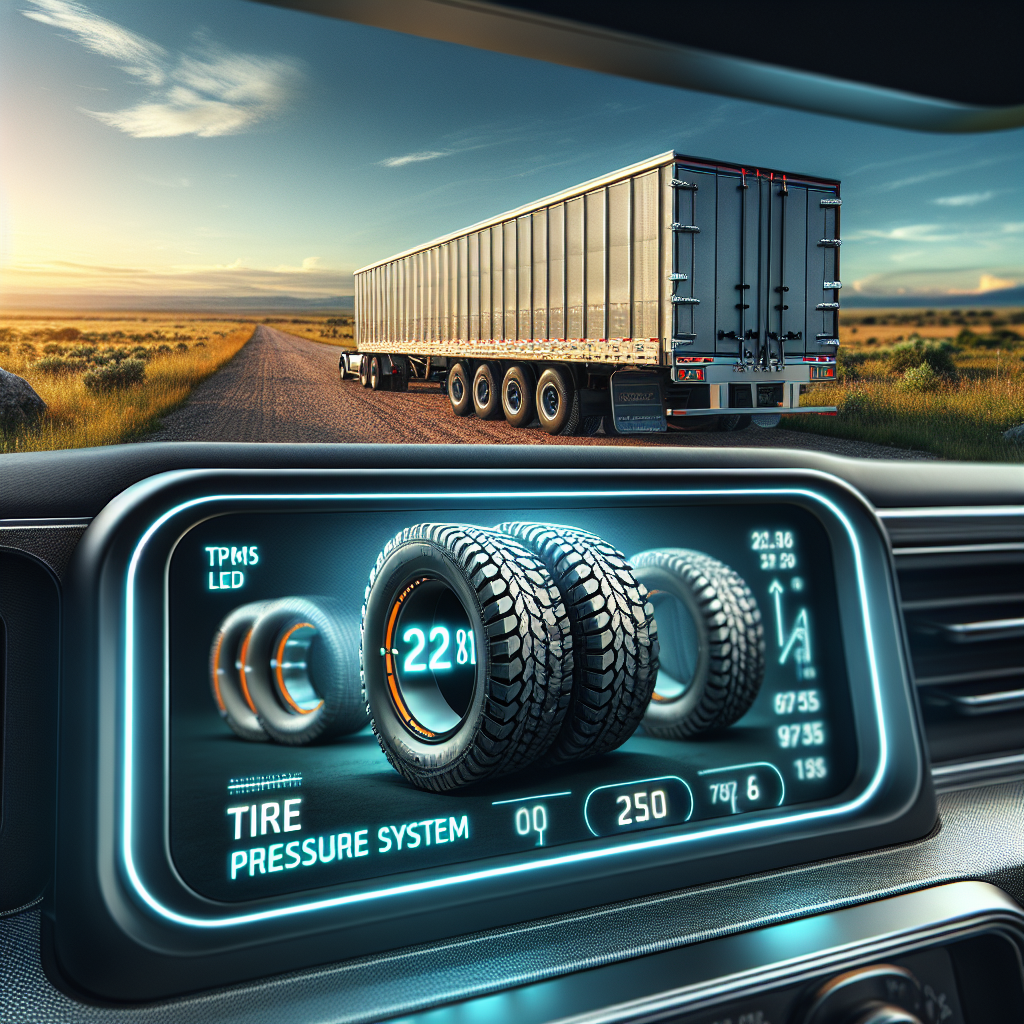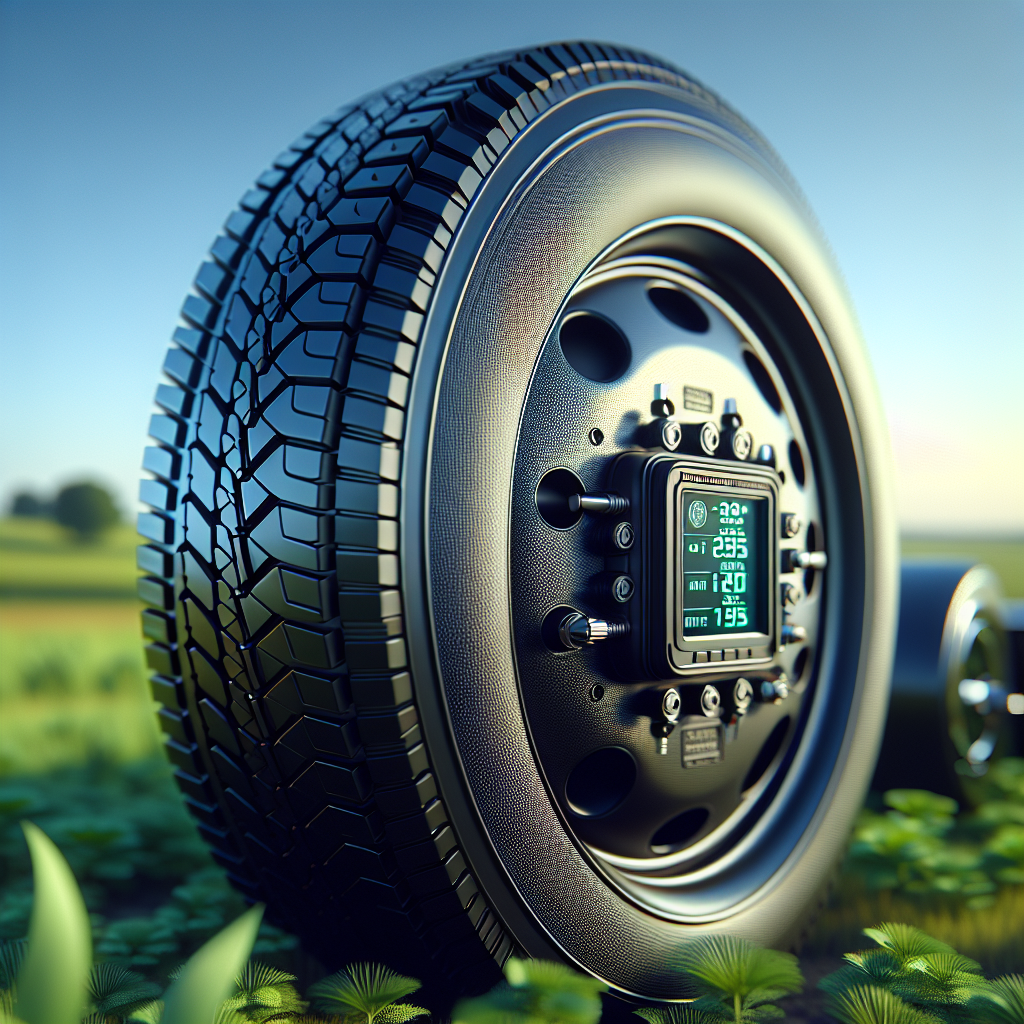When it comes to ensuring the safety and reliability of your trailer, understanding the significance of a TPMS for trailer tires cannot be overstated. A Tire Pressure Monitoring System (TPMS) is an essential tool that actively monitors the air pressure of your trailer tires, providing real-time data that can help prevent potential issues before they escalate into serious failures.
Proper tire pressure is crucial for a multitude of reasons:
- Enhanced Safety: Under-inflated tires can lead to blowouts, which pose a significant danger on the road. A TPMS alerts you to any deviations in tire pressure, allowing for timely adjustments.
- Improved Performance: Properly inflated tires ensure better fuel efficiency and smoother rides, which is particularly important for long hauls. This can save you money on fuel and reduce wear on your trailer.
- Extended Tire Life: Regular monitoring of tire pressure helps in maintaining optimal conditions, which can significantly extend the lifespan of your tires.
Moreover, a TPMS can provide vital data on tire temperature, which is also a critical factor in tire performance. Elevated temperatures can indicate issues like overloading or brake problems, both of which can lead to catastrophic failures if not addressed promptly.
To keep your haul safe and smooth, tow with peace of mind, knowing that trailerwatchdog is standing guard with our advanced trailer monitoring system.
How TPMS Enhances Trailer Safety and Performance

The implementation of a TPMS for trailer tires significantly elevates both safety and performance, making it an indispensable tool for any trailer owner. By continuously monitoring tire pressure and temperature, a TPMS proactively identifies potential issues that could compromise the integrity of your trailer.
One of the primary ways a TPMS enhances safety is through its real-time alerts. These alerts notify the driver of any significant changes in tire pressure or temperature, allowing for immediate action before problems escalate. For instance:
- Real-Time Alerts: If a tire’s pressure drops below a safe threshold, the system immediately signals the driver, enabling them to pull over and address the issue promptly.
- Predictive Maintenance: By analyzing tire performance data, the TPMS can predict potential failures, allowing for scheduled maintenance before a breakdown occurs.
Furthermore, maintaining optimal tire pressure contributes to enhanced performance. Tires that are correctly inflated ensure better traction, handling, and fuel efficiency, which are crucial for long journeys. Under-inflated tires can negatively affect braking distance, making it harder to control the trailer.
Additionally, the longevity of the tires is directly correlated with proper monitoring of their conditions. A TPMS helps to prevent uneven wear, which can lead to costly replacements and downtime. By keeping a close eye on your trailer tires, you not only ensure safety but also enhance overall performance.
Key Features to Look for in TPMS Systems

When selecting a TPMS for trailer tires, it is crucial to consider specific features that will optimize safety and performance. Not all tire pressure monitoring systems are created equal, and understanding key features can help you make an informed decision for your trailer needs. Here are some essential aspects to look for:
- Real-Time Monitoring: Choose a system that provides continuous monitoring of tire pressure and temperature. Real-time alerts allow you to respond quickly to any changes that could compromise safety.
- Wireless Connectivity: A TPMS with wireless sensors simplifies installation and ensures ease of use. Look for systems that can communicate wirelessly with your vehicle's display, providing you with essential data without complicated wiring.
- Durability: Since trailers often endure harsh environments, it's important to select a TPMS with robust sensors that can withstand extreme temperatures, moisture, and road conditions.
- Battery Life: A long-lasting battery ensures that your TPMS remains operational without frequent replacements. Look for systems with energy-efficient sensors to minimize maintenance.
- Easy Installation: Opt for a system that offers straightforward installation procedures, allowing you to set it up without the need for professional assistance.
- Alerts and Notifications: Ensure that the TPMS can send alerts directly to your phone or vehicle display. The more customizable the notifications, the better you can monitor your trailer’s performance.
By focusing on these key features, you can enhance your trailer’s safety and performance, ensuring a smoother and more secure hauling experience.
Installation and Maintenance of TPMS for Trailers

Installing a TPMS for trailer tires is an essential step in enhancing the safety and efficiency of your trailer. Understanding the installation process and ongoing maintenance requirements can help you maximize the benefits of your tire monitoring system.
Installation can vary depending on the specific TPMS model, but here are some general steps to guide you:
- Read the Manual: Always start by thoroughly reading the manufacturer’s manual. Different systems have unique installation requirements, and following the provided guidelines is crucial.
- Sensor Installation: Most TPMS systems come with sensors that need to be attached to each tire valve. Ensure that the tire is deflated slightly before installation to avoid damaging the sensor. Securely tighten the sensors to prevent any leakage.
- Receiver Setup: The receiver unit, which communicates with the sensors, should be installed inside the vehicle's cab. This unit should be positioned within the driver's line of sight for easy monitoring.
- Calibration: After installation, calibrate the system according to the manufacturer's instructions. This step ensures that the TPMS accurately reads and displays tire pressure and temperature data.
Once the TPMS is installed, regular maintenance is essential for optimal performance:
- Check Sensor Batteries: Periodically check the battery life of the sensors, as low battery levels can affect performance. Replace batteries as needed to ensure continuous operation.
- Monitor Alerts: Stay vigilant by regularly checking alerts from the TPMS. Address any warnings or notifications promptly to avoid potential issues.
- Routine Inspections: Conduct regular inspections of the tire pressure and temperature readings. Ensure that the sensors remain securely fastened and free from dirt or debris.
By following these installation and maintenance guidelines, you can ensure that your TPMS remains effective, providing you with peace of mind every time you hit the road.
Benefits of Smart Trailer Monitoring Systems

Implementing a smart trailer monitoring system offers a multitude of advantages that significantly enhance the safety and efficiency of your hauling operations. These systems, which monitor various aspects of your trailer, including axle temperature and tire pressure, provide real-time data that can prevent catastrophic failures and improve overall performance.
Here are some key benefits of utilizing smart trailer monitoring:
- Enhanced Safety: By continuously monitoring tire pressure and temperature, you can identify potential issues before they escalate into dangerous situations. This proactive approach minimizes the risk of blowouts and accidents on the road.
- Improved Efficiency: Smart monitoring systems allow for better fuel efficiency by ensuring that tires are maintained at optimal pressure. Properly inflated tires reduce rolling resistance, enhancing fuel economy and saving costs over time.
- Data-Driven Insights: These systems collect valuable data regarding tire performance and axle conditions. Analyzing this information can lead to informed decisions regarding maintenance schedules and operational practices, ultimately extending the lifespan of your trailer.
- Remote Monitoring: Many smart trailer monitoring systems offer remote monitoring capabilities, allowing fleet managers to keep tabs on their trailers from anywhere. This feature ensures that any anomalies are addressed promptly, enhancing operational efficiency.
- Cost Savings: By preventing unexpected breakdowns and costly repairs, smart monitoring systems can result in significant cost savings. Regular maintenance alerts and performance insights help to optimize trailer management and reduce overall operational costs.
Incorporating a smart trailer monitoring system not only safeguards your investments but also elevates your logistics and transportation performance. With enhanced safety, efficiency, and data insights, your operations will be better equipped to handle the demands of the road.
Conclusion: Ensuring Safety with TPMS Technology
In conclusion, the integration of TPMS technology for trailer tires is a vital step towards ensuring the safety and efficiency of your hauling operations. With the ability to monitor tire pressure and temperature in real-time, TPMS systems allow for proactive maintenance and immediate response to potential issues. This not only enhances the safety of your trailer but also contributes to smoother hauling experiences.
By utilizing state-of-the-art monitoring systems, trailers can be transformed into smart trailers, equipped with the intelligence needed to prevent catastrophic failures. The benefits, including improved fuel efficiency, reduced maintenance costs, and enhanced safety, make a compelling case for adopting this technology.
Don't compromise on safety when it comes to your trailer. Tow with peace of mind, knowing that trailerwatchdog is standing guard. Visit trailerwatchdog.com today to explore how we can help you keep your haul safe and smooth!








